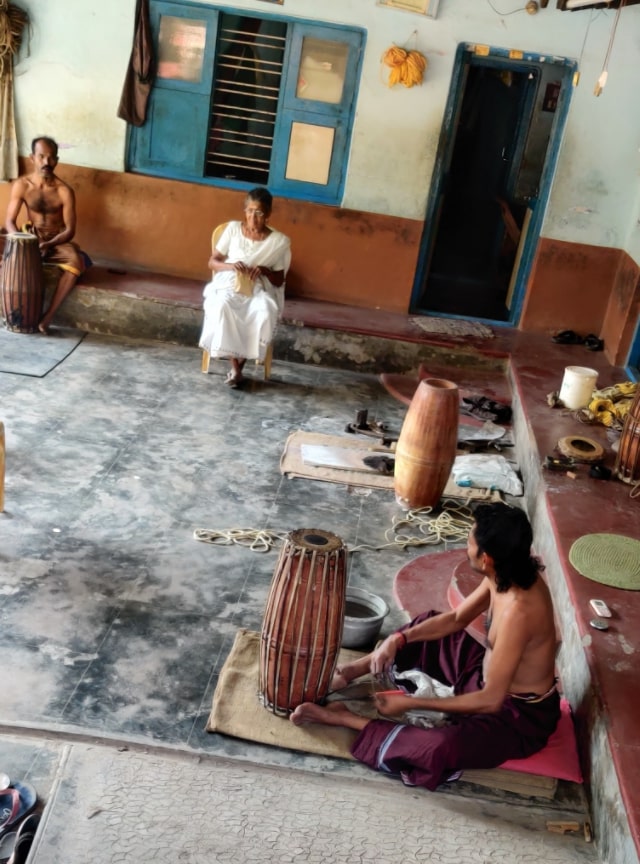
In Kerala’s Peruvemba village, one family has been making the Mridangam, a Carnatic instrument, for four generations. They make two types of Mridangams – Ech and Thag. […]
The cumbersome and labour-intensive process of making every piece, which continues seamlessly and without glitches, takes anywhere between 2-3 months to complete. Generally, the artisans dedicate a part of their house to make the instruments. This is probably the reason why the entire family is involved in the work. Rajesh was around eight when he first tried his hands at making one. […]
Every family member excels at certain tasks. For example, my grandmother aces mashiyidal, which is the black circular ring on top of the instrument made from boiled rice and black stone. Her work is especially in demand by customers. Likewise, my father perfects the shape,” says Rajesh.
The main materials to make the instrument are jackfruit and leather. The family sources their jackfruit from Tamil Nadu’s Panruti village and to ensure the sturdiness, the tree has to be at least 30 years old. The middle and lower body of the fruit is cut and kept for drying for nearly two months, and then chiselled to make the body. […]
Source: “Musicians Across India Rely On This Kerala Family’s 200-YO Legacy Of Mridangams” by GOPI KARELIA (The Better India, 26 April 2021)
URL: https://www.thebetterindia.com/253401/kerala-peruvemba-mridangam-carnatic-music-instrument-kasumani-indian-musicians-family-legacy-history-tradition-culture-india-gop94/
Date visited: 1 June 2021
Information about the persons, items or topics
Research & Custom search engines
The Oxford Illustrated Companion to South Indian Classical Music
Learn & practice more
A brief introduction to Carnatic music (with music examples and interactive map)
Bhava and Rasa explained by V. Premalatha
Free “flow” exercises on this website
Introduction (values in the light of modernity)
Video | Keeping tala with hand gestures: Adi (8 beats) & Misra chapu (7 beats)
Why Carnatic Music Matters More Than Ever
Worldcat.org book and journal search (including Open Access)
